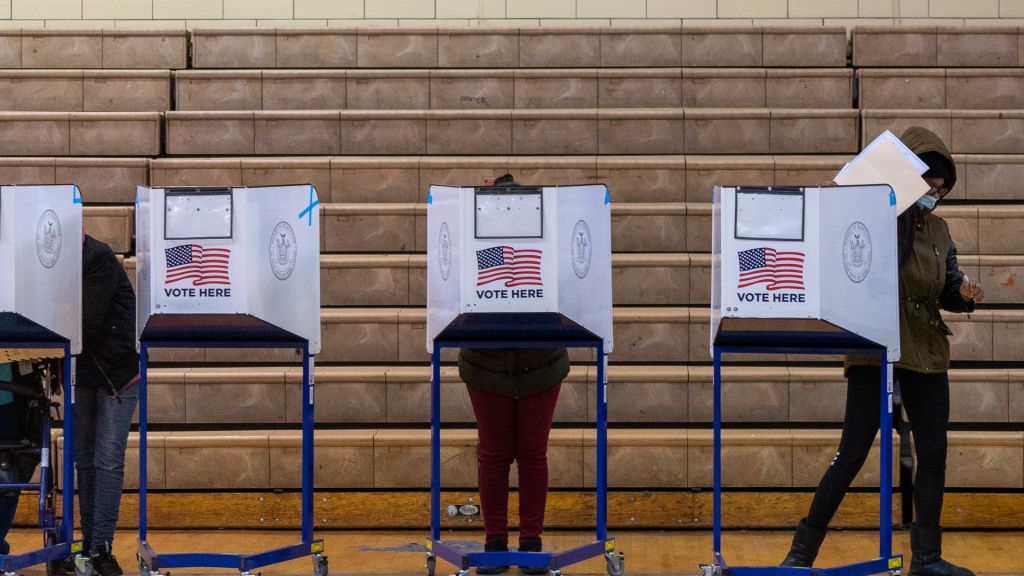
Commentary
-
Our commentary partners will help you reach your own conclusions on complex topics.
Hey, everybody, Peter Zeihan here coming to you from breezy, chilly, California. And today we’re going to talk about
statistics. Yes, yes, yes, I know. But it’s a lot better than it sounds. So I can’t do anything that I can do with analysis, much less forecast without decent data. And in some countries, that’s just more difficult to do than others. I’m not talking here about like, bureaucratic interfaces, or anything I’m talking about just outright lies. So the two countries that have always been a bit of a black hole, when it comes to the data are China and Russia. In the case of China, the lies are primarily of choice. So you’ve got individual local leaders who are pumping up their own numbers to get more money from the federal government, or in order to curry favor. So if the government says we want 6% growth, they’ll get six and a half. But some of it is just outright greed. The point where the Chinese system admits that you’re a person and starts to count on you is when you enroll for kindergarten, basically. So local governments have bumped up the number of people who have enrolled in order to get more cash, you play that forward for 40 years, the Chinese are now admitting that they’ve over counted their population by in excess of 100 million people. And this is a big part of why China today is now in terminal economic decline. They just don’t have the people anymore, and they didn’t see it coming because the numbers told them otherwise. And the case of Russia, it’s more of a classic one upmanship. There’s a general belief among Russian bureaucrats that they have to be better than the United States, even if they have to completely fabricated everything. So my personal favorite statistic out of Russia, is that the Russians see that roughly 1/5 of American agricultural land is irrigated. So in Russia, 25% is your good because 25% is more than 20%, that mix is better than you, which is, of course, you know, dumb because if you’re irrigating land, that means you have to pay for it. And it’s usually not as efficient. Anyway, this has always been a challenge. We normally deal with this by evaluating Counterparty. So if the Chinese say Export, some product, let’s call electronics to other countries, then you look at the import data for those other countries. And you use that to back up to estimate how much came out of China. Same with the Russians. What we’re seeing now with the Ukraine war, and the onset of sanctions at volume, is that the Russians are no longer lying about their data. They’re just not reporting it at all. And in the case of China, they’re not just lying about the data, there’s in many cases not collecting it. So a good example of that very, very recent, just the last few weeks is with COVID. Now, Chinese data on COVID has always been nudge wink, questionable, but they just stopped collecting it all after their opening. And you can kind of see why. I mean, let’s assume for the moment that the anti vaxxers and the conspiracy theorists among us in the United States have actually been right all along. And COVID is no more dangerous to you than the common cold. Well, if that is true, China still lost a million people in the last several weeks as COVID spread through the population for the first time. It’s probably almost certainly significantly worse. And if the Chinese don’t collect the data, and you have an information closed society, then no one knows. But I don’t want to just pick on the autocracies out there because the whole world is going to have a problem with data moving forward. A couple things. First, if you’re talking about a breakdown of the global trading system, we are going to have spasm mean inflation as some products get produced in some zones, but can’t get to others for assembly, or raw commodities can produce somewhere but can’t get shipped everywhere. Every part of the world is going to have different inflationary deflationary and disinflationary trends, different from not just product to product but component to component. And keeping track of that much less putting into an index is going to be a fool’s errand. We’re just going to feel the term of product shortages across the entire system. And until you can home shore or near shore or French shore, in that order, the component production themselves the material processing itself, it’s not going to go away because it’s going to be vulnerable to security interruptions. Second, most of our economic laws and rules and understanding are rooted in the idea that the economy gets a little bit bigger every year, not necessarily from technological advancement or economic growth classically, but simply from populations expanding. If you have more people every year, you have a little bit more consumption every year, you have a little bit bigger economic pie every year. Only that’s no longer true. In the aftermath of World War Two, the whole world started to industrialize, which is another way of saying the entire world started to urbanize. And as you move from the farm and into town, you have fewer kids until you get to modern day say China. We’re in the cities, you’re averaging now less than one person per woman for her lifetime. After 75 years of this
process. We are now well past the point that the advanced countries are repopulating China’s on that list. And over the course of the next 10 to 20 years, a lot of the advanced industrial world, places like Korea are gonna follow suit, which means that the pie is not getting bigger, which means that the tools we’ve developed, the theories we’ve helped develop, the monetary policy that we’ve developed, is no longer appropriate for the world that we’re in. It is going to take us years, if not decades, to come up with a replacement system and replacement rules and replacement understandings and theories and especially policy tools to adapt to this, North America gets a bit of a pass. First of all, the Mexicans have the healthiest demography not just in the rich world, but in their own pure class better than India better than Brazil better than Turkey. And the United States, we have one of the highest birth rates in the world among the rich countries, and now higher than many advanced developing countries as well, at at current rates of aging, we will actually be younger than the Brazilians in the mid 2040s, and younger than the Indonesians around 2050. So we’ve got time, Canada doesn’t have that kind of time. But Canada has gotten cleverer and has a cheat code and basically has embraced immigration as a national identity issue. And so they’ve been able to import a huge number of people in their 20s and their early 30s in a way that they haven’t done before. And that’s bought them on time by importing an entire generation. That means North America is at least partially resistant to these trends. And the countries of North America are not going to have to be the ones to pioneer a fundamentally different economic model simply to preserve their societies. We can wait we can watch we can learn. Anyway, that’s it for me. I’ll see you guys next time.
-
Hurricane Helene hits US coast, Appalachia and beyond
Hurricane Helene hit Florida and Georgia overnight between Sept. 26 and 27 as a Category 4 hurricane, and accompanying storms will continue reaching deeper into the continental United States today. Dangerous flash flooding from the hurricane, known as storm surge, was some of the worst flooding that the Tampa Bay area has ever seen, and… -
Israel holds upper hand against Lebanon, Hezbollah and Iran
On Wednesday, Sept. 25, Hezbollah launched a ballistic missile at Tel Aviv in retaliation for Israel’s explosive pager attack that blew up devices across Lebanon. Although Israel’s defense systems intercepted the surface-to-surface missile, the attempted strike on Tel Aviv marked a significant escalation by Hezbollah. Since the siege on Gaza began, shortly after the Oct. 7, 2023,… -
The Sinaloa Cartel civil war
Fears of a civil war within the Sinaloa Cartel are growing as violence between competing factions within the cartel continues. The Mexican Army has dispatched around 600 elite troops to Sinaloa to help quell those fears, in addition to roughly 2,200 regular soldiers and National Guard. Watch the above video as Straight Arrow News contributor… -
New Ukrainian weapons hit Russia where it hurts
Ukrainian drones struck a major Russian ammunition depot, triggering a massive explosion that was captured on camera. According to the Ukrainian military, 2,000 tons of munitions had arrived at the depot before the attack. Over the past two years, Ukraine has significantly increased its domestic drone production, allowing it to scale up attacks on military… -
Weighing social costs vs. economic benefits on immigration
Global human migration is one of the defining elements of our current historical era, according to the United Nations. Migrants face both the incentives to leave — forced out by climate change, crime and corruption, extreme poverty or violence — and incentives for where to go, based on available job opportunities and so on. Migration…
Latest Stories
-

CNN faces defamation trial over Afghanistan evacuation report
-
 Getty Images
Getty Images
Self-driving vehicle company Waymo gets $5.6B to expand, despite challenges
-
 Getty Images
Getty Images
Massive fire at US base in South Korea extinguished after 19 hours
-
 Getty Images
Getty Images
Dodgers-Yankees World Series matchup the more classic kind of ‘moneyball’
-
 Getty Images
Getty Images
Federal judge orders Virginia to restore more than 1,600 voter registrations
Popular Opinions
-
In addition to the facts, we believe it’s vital to hear perspectives from all sides of the political spectrum.
Latest Opinions
In addition to the facts, we believe it’s vital to hear perspectives from all sides of the political spectrum. We hope these different voices will help you reach your own conclusions.
The opinions published in this section are solely those of the contributors and do not reflect the views of Straight Arrow News.

















Latest Commentary
We know it is important to hear from a diverse range of observers on the complex topics we face and believe our commentary partners will help you reach your own conclusions.
The commentaries published in this section are solely those of the contributors and do not reflect the views of Straight Arrow News.
Dr. Frank Luntz
Pollster and Political Analyst‘Awful’: Americans discuss Congress, Supreme Court, capitalism
‘Divided we fall’: Americans discuss concerns for democracy
‘That was great’: Undecided voters react to Walz-Vance debate